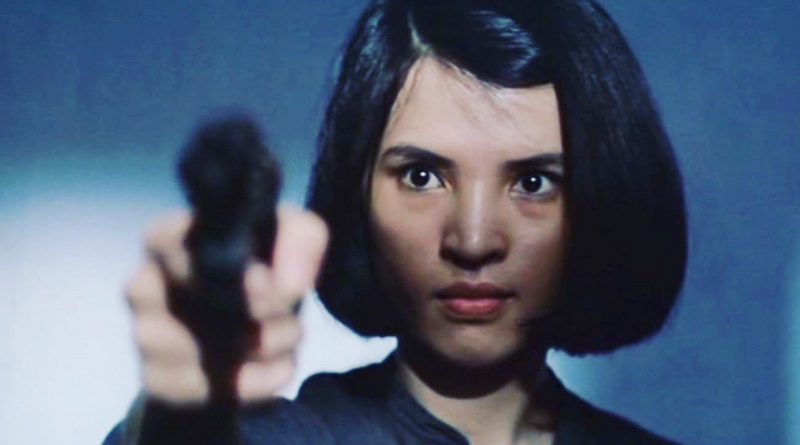Long before Tsui Hark was known for his mainstream fares, namely Zu: The Warriors From The Magic Mountain <新蜀山劍俠> (1983) and Once Upon A Time In China <黃飛鴻> (1991), his first three movies were bold and experimental piece of cinema.
His first two directorial efforts — The Butterfly Murders <蝶變> (1979) and We’re Going To Eat You <地獄無門> (1980) — were fascinating genre-bending works from then-young and maverick director Tsui Hark. But both movies bombed at the box office — a result that according to Daniel O’Brien’s 2003 book of Spooky Encounters: A Gwailo’s Guide to Hong Kong Horror, he “seriously considered quitting the film business”.
Then came his third movie, Dangerous Encounter – 1st Kind <第一類型危險>, which was released a few months later after the underperformed We’re Going To Eat You <地獄無門> in 1980. The movie, which tells three teenage pranksters (Albert Au Shui-Keung’s Paul, Lung Tin-Sang’s Loong and Paul Che Biu-Law’s A Kao) reluctantly join Wan-Chu (Lin Chen-Chi) in a series of violent rampage, was surprisingly a box office hit at the time of its release.
Even so, it came at a price as Tsui’s original vision was reportedly banned for its politically-sensitive contents, notably on a scene that echoes the 1967 Hong Kong riots involving a homemade bomb. As a result, Hong Kong audiences only get to see the slightly shorter and censored version released in the cinemas. The original cut, however, was subsequently restored on DVD release.
Looking back at Dangerous Encounter – 1st Kind <第一類型危險> today, Tsui Hark’s no-hold-barred directing style that doesn’t shy away from its uncompromising depictions of teenage angsts and social disaffection remain as impactful as ever. Xenophobia also plays a huge part in this movie, notably on the introduction of foreign villains who’s up to no good — a stark metaphor that Tsui indirectly expressing his view on how foreigners came to Hong Kong to exploit the locals in terms of socio-economic and cultural perspectives. To put it simply, everything here is as dark, grim and pessimistic as they get. Even Tsui’s vision of Hong Kong is more of an urban decay than a vibrant city full of life.
The characters are largely portrayed in a negative light as well, with the three young actors — all great performances — who played the irresponsible teenagers are oblivious of their reckless and immoral actions. Tsui also gives Taiwanese actress Lin Chen-Chi the role of her lifetime, playing a remorseless young girl who is full of hatred to the point she enjoys torturing animals (the brutal scene involving a cat being thrown out of the window comes to mind). It’s a pity she didn’t last long enough after retiring early from showbiz. Her last appearance was 1982’s Demi-Gods and Semi-Devils <新天龍八部>.
As unlikable as these characters are, Tsui manages to make them engaging enough to watch. It also helps that the thought-provoking subject matters in Dangerous Encounter – 1st Kind <第一類型危險> resonates well even until today. The visceral impact showcased in this movie is just as notable, with the violent confrontation in the vast graveyard remains one of the best downbeat endings ever seen in Hong Kong cinema.
Tsui may finally scored a hit in Dangerous Encounter – 1st Kind <第一類型危險> but this would be the last time he made such a pessimistic and reflective piece of cinema. Since then, he shifted his direction to a more mainstream-friendly approach, beginning with the 1981’s financially-successful comedy All The Wrong Clues <鬼馬智多星> starring George Lam and Teddy Robin Kwan. Although Tsui subsequently re-established himself as the Hong Kong filmmaker who famously revived the martial arts genre in Once Upon A Time In China <黃飛鴻> (1991), he did revisit some of his earlier roots in the form of a gritty wuxia revenge film, The Blade <刀> in 1995.
Back to Dangerous Encounter – 1st Kind <第一類型危險>, the movie also featured two of then-newcomers in Hong Kong cinema including the young Ray Lui of TVB’s The Bund <上海滩> fame as the shades-wearing police officer and Deanie Ip in a cameo appearance as a uniformed policewoman.


